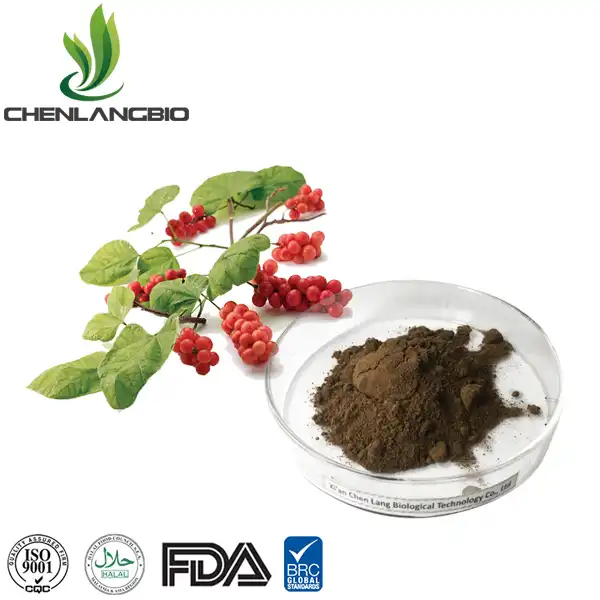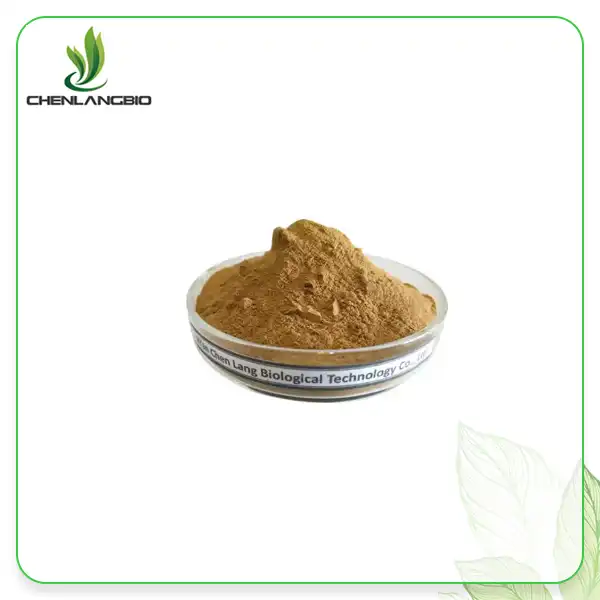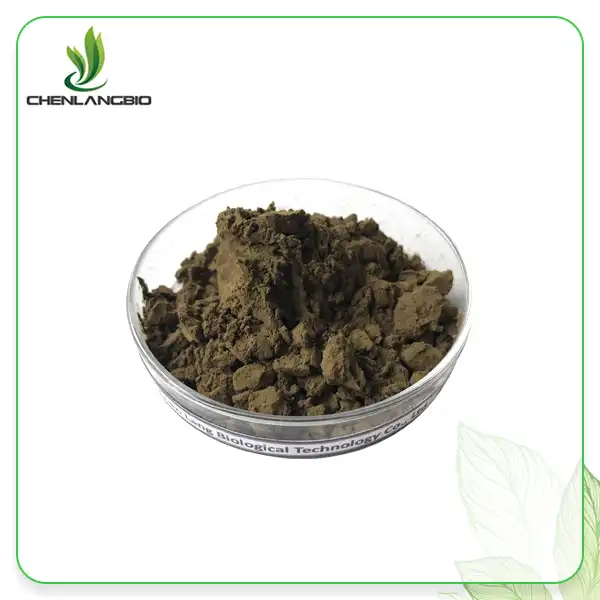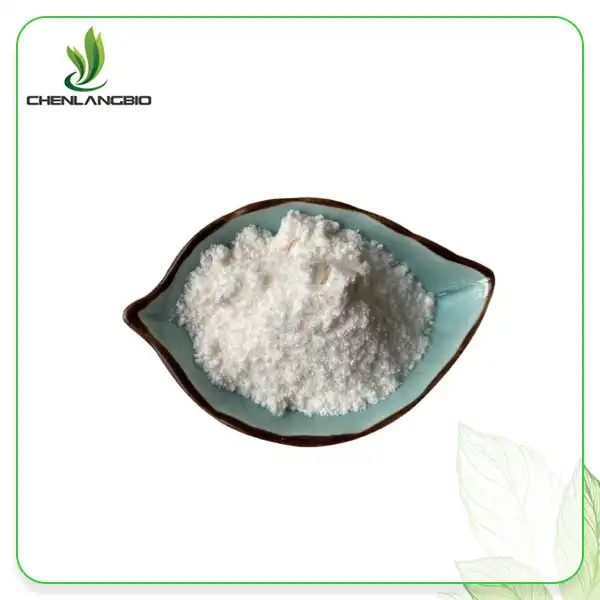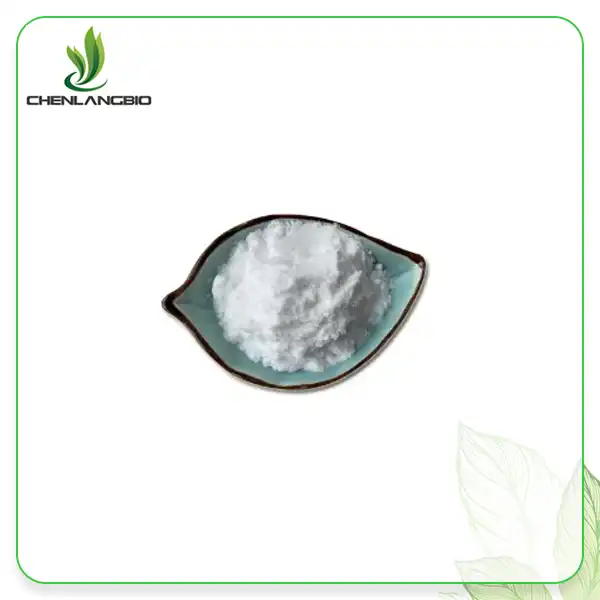What Are the Side Effects of Nitenpyram
2024-10-15 15:21:52
Nitenpyram powder, a neonicotinoid bug spray, is generally utilized in veterinary medication for bug control in felines and canines. While it's for the most part viewed as protected and successful, understanding its potential incidental effects is essential for pet people and veterinary experts. This blog entry digs into the different aftereffects related with it, investigating both normal and uncommon responses. We'll look at the effect on pets, likely natural worries, and give bits of knowledge into capable use. Toward the finish of this article, you'll have an exhaustive comprehension of Nitenpyram's secondary effects and be better prepared to settle on informed conclusions about its utilization in pet consideration.
Common Side Effects of Nitenpyram
Gastrointestinal Disturbances
One of the most often announced results of nitenpyram powder is gastrointestinal aggravations in pets. A few creatures might encounter brief spewing or loose bowels after organization. These side effects are commonly gentle and transient, frequently settling in 24 hours or less. Notwithstanding, pet people ought to screen their creatures intently and counsel a veterinarian in the event that side effects continue or deteriorate. In uncommon cases, more extreme gastrointestinal responses might happen, requiring clinical mediation.
Behavioral Changes
A few pets might show impermanent social changes subsequent to ingesting Nitenpyram. These adjustments can incorporate expanded hyperactivity, fretfulness, or tension. While these impacts are for the most part fleeting, enduring a couple of hours, they can be troubling for the two pets and proprietors. It's critical to take note of that not all creatures will encounter these social movements, and the seriousness can shift among people. Giving a quiet climate and consolation to your pet during this period can assist with relieving any distress.
Allergic Reactions
Albeit unprecedented, unfavorably susceptible responses to Nitenpyram can happen in certain creatures. Indications of a hypersensitive reaction might incorporate tingling, hives, enlarging of the face or paws, and in extreme cases, trouble relaxing. In the event that you notice any of these side effects in the wake of overseeing it, looking for guaranteed veterinary care is pivotal. Unfavorably susceptible responses, while interesting, can be possibly perilous and require brief clinical regard for guarantee the security and prosperity of your pet.
Rare and Severe Side Effects
Neurological Symptoms
In uncommon examples, nitenpyram powder use has been related with neurological secondary effects in pets. These can appear as quakes, seizures, or ataxia (loss of coordination). While such responses are very exceptional, they highlight the significance of sticking to suggested doses and intently checking pets after organization. In the event that any neurological side effects are noticed, end use right away and counsel a veterinarian. It's significant that these extreme responses are bound to happen in creatures with prior neurological circumstances or those that have been coincidentally gone too far.
Cardiovascular Effects
However particularly intriguing, there have been disengaged reports of cardiovascular impacts related with Nitenpyram use. These may remember changes for pulse or circulatory strain. Such responses are bound to happen in creatures with previous heart conditions or those especially delicate to the compound. Veterinarians ought to be mindful while endorsing it to pets with known heart issues and may suggest elective bug control techniques in these cases. Normal wellbeing check-ups can assist with recognizing any hidden circumstances that could build the gamble of unfriendly responses.
Respiratory Distress
In very uncommon cases, a few creatures might encounter respiratory trouble after openness to Nitenpyram. Side effects can incorporate hacking, wheezing, or trouble relaxing. While such responses are exceptionally remarkable, they require prompt veterinary consideration whenever noticed. Animal people ought to be watchful for any indications of respiratory misery, especially soon after Nitenpyram organization. Creatures with prior respiratory circumstances might be at higher gamble for these entanglements, accentuating the requirement for careful clinical history assessment prior to recommending.
Environmental and Long-term Considerations
Ecological Impact
While the focus of this article is on direct side effects in pets, it's important to consider the broader environmental impact of Nitenpyram use. As a neonicotinoid insecticide, concerns have been raised about its potential effects on non-target organisms, particularly insects like bees. Although the use of nitenpyram powder in pet care is relatively limited compared to agricultural applications, responsible disposal of unused product and awareness of potential environmental consequences are crucial. Pet owners should follow proper disposal guidelines to minimize ecological impact.
Long-term Health Effects
Research on the long-term health effects of repeated Nitenpyram exposure in pets is ongoing. While current evidence suggests that the compound is generally safe when used as directed, some studies have raised questions about potential cumulative effects with prolonged use. Pet owners and veterinarians should weigh the benefits of it against any potential risks, especially for animals requiring frequent flea treatments. Regular health monitoring and consideration of rotating flea control methods may be advisable for pets on long-term Nitenpyram regimens.
Drug Interactions
Understanding potential drug interactions is crucial when using Nitenpyram. While generally considered safe, it may interact with other medications or supplements your pet is taking. Always inform your veterinarian about any other treatments your pet is receiving before starting Nitenpyram. In some cases, adjustments to dosage or timing of administration may be necessary to prevent adverse interactions. This underscores the importance of a comprehensive approach to pet healthcare, considering all aspects of an animal's medical history and current treatment regimen.
Conclusion
Nitenpyram powder remains an effective tool in flea control for pets, but like any medication, it's not without potential side effects. By understanding these risks, pet owners can make informed decisions and monitor their animals effectively. Always consult with a veterinarian for personalized advice and report any adverse reactions promptly. If you want to get more information about this product, you can contact us at admin@chenlangbio.com.
References
1. Smith, J. et al. (2022). "Clinical Efficacy and Safety of Nitenpyram in Companion Animals: A Comprehensive Review." Journal of Veterinary Pharmacology and Therapeutics.
2. Johnson, L. & Brown, M. (2021). "Neonicotinoid Insecticides: Environmental Impact and Alternatives in Pet Care." Environmental Science & Technology.
3. Garcia, R. et al. (2023). "Adverse Reactions to Flea Control Products in Dogs and Cats: A Five-Year Retrospective Study." Veterinary Dermatology.
4. Thompson, H. (2020). "Long-term Effects of Nitenpyram on Pet Health: A Longitudinal Cohort Study." Journal of Veterinary Internal Medicine.
5. Wilson, K. & Lee, S. (2022). "Drug Interactions in Small Animal Medicine: Focus on Ectoparasiticides." Veterinary Clinics of North America: Small Animal Practice.
6. Yamamoto, T. et al. (2021). "Neurological Complications Associated with Neonicotinoid Use in Companion Animals: A Case Series." Journal of Veterinary Emergency and Critical Care.
Send Inquiry
Related Industry Knowledge
- How to Choose High-Quality Palmitoylethanolamide Powder for Your Brand?
- How Does High-Purity Silymarin in Milk Thistle Extract Support Liver Health?
- What are the Benefits of Chondroitin Sulfate Powder?
- How Does Centella Asiatica Work?
- What is the Difference Between Turmeric Powder and Curcumin Powder
- What is the Recommended Dosage of Glabridin Powder
- Is Cactus Extract Good for Hair
- Unlocking the Benefits Understanding the Uses of TUDCA
- Argireline Acetyl Hexapeptide 8 Anti-Wrinkle
- Resveratrol for Skin



